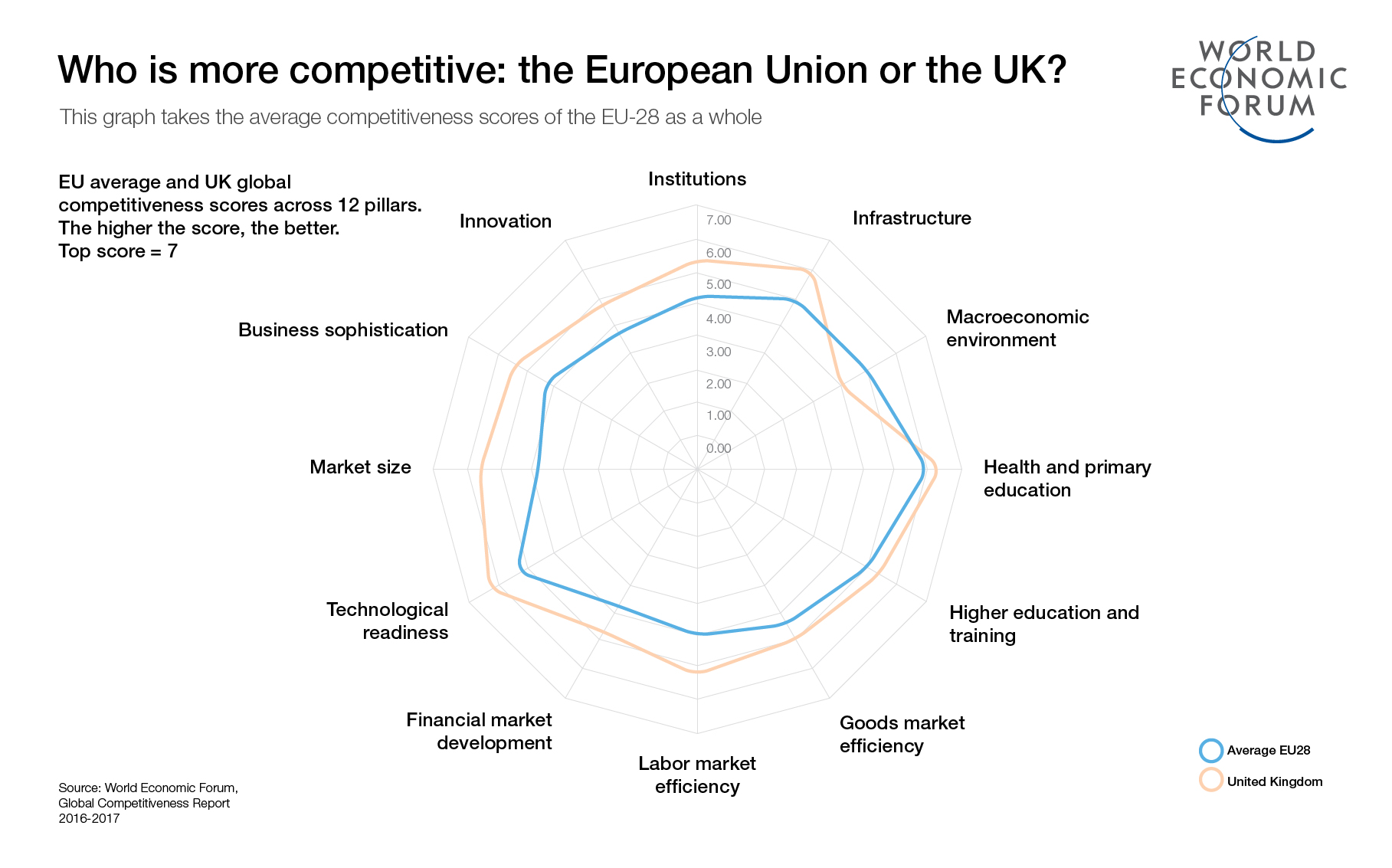What impact will Brexit have on the UK’s competitiveness?

Image: REUTERS/Neil Hall
The United Kingdom’s economic relationship with the European Union is incredibly complex and it is impossible to know exactly how Britain’s exit – once it happens – will affect the country’s competitiveness. However, there are some things we do know.
Of the 112 individual indicators that make up the Global Competitiveness Index, 14 could be directly negatively impacted by Brexit.
On the other hand, three (potentially six) of the 112 indicators have the potential to make a direct positive impact on the UK’s score and thus rank.
Key to the UK’s competitiveness going forward will be how successful it is in minimizing the potential downside from those 14 indicators while maximizing any upside from those that could have a positive impact.
There are no precedents to help us here, but what we do know from studying other non-EU nations that have a close trading relationship with the bloc is that in many of the indicators that are directly influenced by Brexit, the UK currently fares better than its non-EU peers.
Here are some examples:
- Prevalence of non-tariff barriers: United Kingdom 28th, Switzerland 90th
- Trade tariffs: United Kingdom 5th, Switzerland 41st, Norway 44th
- Prevalence of foreign ownership: United Kingdom 3rd, Switzerland 24th, Norway 21st
- Business impact of rules on FDI: United Kingdom 5th, Switzerland 24th, Norway 29th
At the same time, areas where countries like Switzerland and Norway excel are not directly influenced by EU membership. For example, Norway’s macroeconomic environment is ranked number one in the world largely on account of its oil wealth; Switzerland’s number one status in innovation is based on its strong tradition of collaboration between business and academia. Therefore it is unlikely that the UK would immediately emulate these coutries without major policy activity.
Our analysis, therefore, is that there is a clear downside risk to the UK economy from leaving the European Union, with only limited potential for upside, at least in the short term.
One last thing to note is that given that the pillars are interconnected, this analysis misses out all of the many indirect effects Brexit will have. These in themselves could be substantial.
The Global Competitiveness Report 2016-2017 is available here. You can explore the results of the report using the heatmap below.
Have you read?
Don't miss any update on this topic
Create a free account and access your personalized content collection with our latest publications and analyses.
License and Republishing
World Economic Forum articles may be republished in accordance with the Creative Commons Attribution-NonCommercial-NoDerivatives 4.0 International Public License, and in accordance with our Terms of Use.
The views expressed in this article are those of the author alone and not the World Economic Forum.
Stay up to date:
Economic Growth
Forum Stories newsletter
Bringing you weekly curated insights and analysis on the global issues that matter.
More on Economic GrowthSee all
Rishika Daryanani, Daniel Waring and Tarini Fernando
November 14, 2025








